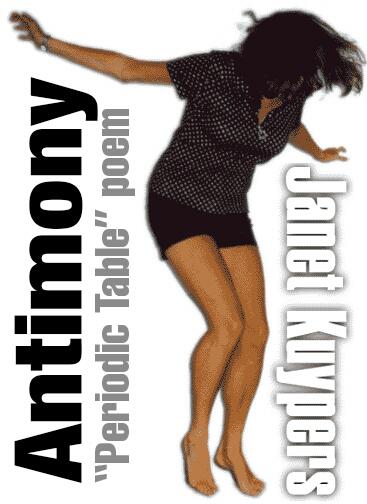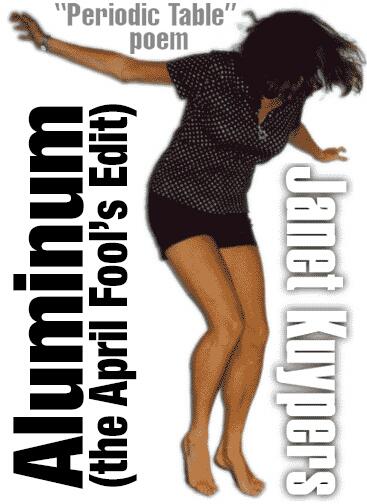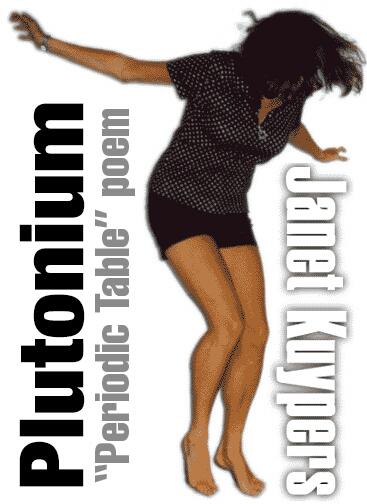Antimony
Janet Kuypers

from the “Periodic Table of Poetry”” series (#51, Sb)
It’s actually quite unremarkable.
It doesn’t seem to have much use.
But Antimony seemed to
cause a long and bitter war
in the sixteen hundreds
between France and Germany.
Wars are started over land,
religion, love, or money.
But the element Antimony?
Well, doctors in that age
believed in the medicinal value
of Antimony, and the war
was the war of the pen,
with opposing views
on Antimony’s medicinal value.
The two sides took up literary arms,
writing scathing reports
in medical journals
with the vitriol
of a Jerry Springer show
where the bodyguards
couldn’t even control the feud.
And the scary thing
is that Antimony is actually toxic…
But still,
Greek physicians
recommended Antimony
for skin complaints
in the first century A.D.,
and since that age,
many still championed Antimony
for medicinal purposes…
In fact, in Germany
a man (under the false name
of a fifteenth century monk
named Basil Valentine)
wrote an entire book
about Antimony remedies,
published in sixteen oh four.
And he claimed that alchemy
could free Antimony
of it’s toxicity:
just because it makes you vomit,
means that it helps your body
remove the toxins that ail you.
The Egyptians even
used Antimony
as a form of mascara —
they called the toxic
Antimony sulfide stibnite
a black eye powder
called “kohl”.
Later, Al-Qaeda chemists
called this substance
Al-Kohl, which came to be
a term to mean any powder,
which led to a sixteen hundreds
Swiss alchemist
to call a distilled extract
of wine “alcool vini”
(which shows the trail
from toxic eye make-up
to intoxicating “alcohol”).
But this fondness for Antimony
lasted through the centuries,
as doctors still prescribed it’s use
through the seventeen hundreds.
It has even been suggested
that Antimony “remedies”
may have been
what actually killed Mozart.
Maybe they caught on
to Antimony
by the next century,
because it became
the element of choice
for murderers looking to cause
a slow painful death
to their victims.
We use Antimony now
only in alloys for batteries,
or maybe to harden lead.
But it’s strange,
that Antimony can have
such a violent history,
dipping it’s hand into everything
from make-up to medicines,
to the later naming of “alcohol”,
to poisoning people.
I guess when people don’t know
all the chemical conditions,
Antimony can lead
a colorful history indeed…


